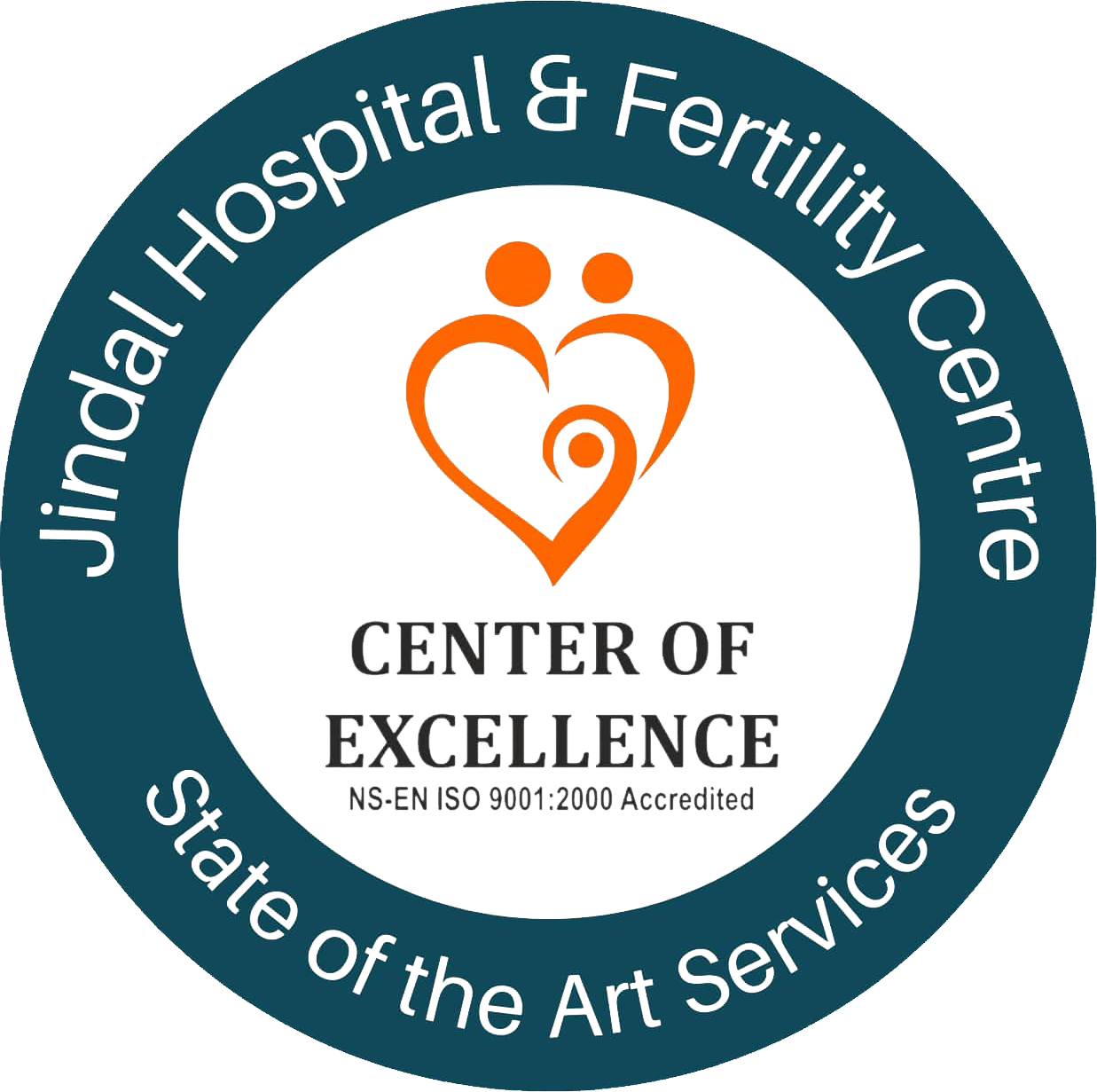
Overview
Do's & Don'ts
FAQs
Overview
Sperm Retrieval Techniques Overview & Causes at Jindal Hospital & Fertility Centre
Introduction
Sperm retrieval techniques are crucial procedures for men facing infertility due to conditions such as azoospermia or obstructive reproductive tract issues. At Jindal Hospital & Fertility Centre, our specialists are skilled in a variety of techniques designed to retrieve sperm for use in assisted reproductive technologies. Here is an overview of these techniques, along with common causes of male infertility requiring sperm retrieval.
Conclusion
Sperm retrieval techniques at Jindal Hospital & Fertility Centre offer hope for men facing infertility due to various conditions affecting sperm production or ejaculatory function. Whether it’s non-obstructive azoospermia, obstructive issues, or testicular dysfunction, our specialists are equipped with advanced techniques to retrieve viable sperm for assisted reproduction. If you are seeking solutions for male infertility, we encourage you to schedule a consultation with our team. Let us guide you through the options, discuss the most suitable technique for your condition, and support you on your journey towards parenthood.
Introduction
Sperm retrieval techniques are crucial procedures for men facing infertility due to conditions such as azoospermia or obstructive reproductive tract issues. At Jindal Hospital & Fertility Centre, our specialists are skilled in a variety of techniques designed to retrieve sperm for use in assisted reproductive technologies. Here is an overview of these techniques, along with common causes of male infertility requiring sperm retrieval.
- Techniques for Sperm Retrieval
- Testicular Sperm Extraction (TESE)
- Procedure: A small incision is made in the scrotum or groin to access the testicle.
- Tissue Biopsy: Tissue samples are taken from the testicle to retrieve sperm.
- Purpose: TESE is used for men with non-obstructive azoospermia, where sperm production is impaired.
- Microdissection Testicular Sperm Extraction (Micro-TESE)
- Procedure: Using a surgical microscope, the surgeon identifies and extracts sperm-containing tissue.
- Precision: Micro-TESE allows for targeted extraction from areas with the highest sperm concentration.
- Benefit: It is particularly effective for men with severe testicular dysfunction.
- Percutaneous Epididymal Sperm Aspiration (PESA)
- Procedure: A needle is inserted directly into the epididymis to aspirate sperm.
- Suitability: PESA is used for obstructive azoospermia, where sperm are produced but blocked from reaching the ejaculate.
- Effectiveness: It is a minimally invasive technique with high success rates.
- Testicular Sperm Aspiration (TESA)
- Procedure: A needle or biopsy instrument is used to extract sperm directly from the testicle.
- Application: TESA is suitable for men with obstructive or non-obstructive azoospermia.
- Versatility: Sperm retrieved through TESA can be used for IVF or ICSI procedures.
- Microsurgical Epididymal Sperm Aspiration (MESA)
- Procedure: Using a microscope, the surgeon locates and aspirates sperm from the epididymis.
- Indication: MESA is used for obstructive azoospermia caused by blockages in the epididymis.
- Success: It offers high success rates for retrieving healthy sperm for fertilization.
- Causes of Male Infertility Requiring Sperm Retrieval
- Azoospermia
- Definition: Absence of sperm in the ejaculate.
- Causes:
- Obstructive: Blockages in the reproductive tract prevent sperm from being ejaculated.
- Non-obstructive: Impaired sperm production in the testicles.
- Obstructive Azoospermia
- Causes:
- Congenital conditions such as congenital absence of the vas deferens (CAVD).
- Infections or inflammation leading to blockages.
- Previous surgeries causing scarring or obstruction.
- Non-obstructive Azoospermia
- Causes:
- Genetic conditions like Klinefelter syndrome.
- Hormonal imbalances affecting sperm production.
- Testicular injury, radiation exposure, or chemotherapy.
- Ejaculatory Duct Obstruction
- Causes:
- Congenital abnormalities in the ducts.
- Infections or inflammations causing blockages.
- Previous surgeries or trauma affecting the ducts.
- Testicular Dysfunction
- Causes:
- Varicocoele: Enlarged veins in the scrotum affecting testicular function.
- Undescended testicles (cryptorchidism).
- Hormonal imbalances or disorders affecting sperm production.
Conclusion
Sperm retrieval techniques at Jindal Hospital & Fertility Centre offer hope for men facing infertility due to various conditions affecting sperm production or ejaculatory function. Whether it’s non-obstructive azoospermia, obstructive issues, or testicular dysfunction, our specialists are equipped with advanced techniques to retrieve viable sperm for assisted reproduction. If you are seeking solutions for male infertility, we encourage you to schedule a consultation with our team. Let us guide you through the options, discuss the most suitable technique for your condition, and support you on your journey towards parenthood.
Do's & Don'ts
Do’s and Don’ts of sperm retrieval techniques:
Do’s for Sperm Retrieval Techniques:- Consult with a Fertility Specialist:
- Seek consultation with a fertility specialist to determine the most suitable sperm retrieval technique for your specific condition.
- Undergo Preoperative Evaluation:
- Complete all recommended tests and evaluations to assess sperm quality, quantity, and overall reproductive health.
- Follow Preoperative Instructions Carefully:
- Adhere to specific preoperative instructions provided by the fertility specialist to prepare for the sperm retrieval procedure.
- Maintain a Healthy Lifestyle:
- Adopt a healthy lifestyle with balanced nutrition, regular exercise, and avoidance of smoking and excessive alcohol consumption to improve sperm quality.
- Stay Hydrated Before the Procedure:
- Drink plenty of water leading up to the procedure to ensure adequate hydration, which can help improve sample quality.
- Ensure Proper Rest Before the Procedure:
- Get sufficient rest and sleep the night before the procedure to promote overall well-being and reduce stress.
- Provide Accurate Medical History:
- Inform the fertility specialist about any medical conditions, medications, or allergies to ensure safe and effective treatment.
- Follow Postoperative Care Instructions:
- Adhere to postoperative care instructions provided by the fertility specialist, including proper wound care and medication usage.
- Attend Follow-up Appointments:
- Schedule and attend all follow-up appointments with the fertility specialist to monitor recovery and discuss next steps.
- Stay Positive and Manage Stress:
- Maintain a positive mindset and manage stress through relaxation techniques, counseling, or support groups during the fertility treatment process.
Don’ts for Sperm Retrieval Techniques:
- Avoid Self-Medication Before the Procedure:
- Refrain from taking any medications, supplements, or herbal remedies without consulting the fertility specialist.
- Don’t Skip Preoperative Tests:
- Complete all required preoperative tests and evaluations to ensure accurate assessment and safe procedure.
- Avoid Heavy Meals Before the Procedure:
- Refrain from consuming heavy or greasy meals before the sperm retrieval procedure to prevent discomfort or nausea.
- Don’t Engage in Strenuous Activities Post-Procedure:
- Avoid strenuous activities, heavy lifting, or vigorous exercise immediately after the sperm retrieval procedure to allow for proper healing.
- Avoid Alcohol and Smoking Post-Procedure:
- Refrain from alcohol consumption and smoking during the recovery period, as they can hinder healing and affect sperm quality.
- Don’t Ignore Signs of Infection:
- Notify the fertility specialist immediately if there are signs of infection such as fever, redness, swelling, or discharge at the procedure site.
- Avoid Sexual Activity Until Cleared by the Specialist:
- Refrain from sexual activity until cleared by the fertility specialist to allow for optimal recovery and avoid potential complications.
- Don’t Delay Seeking Help for Concerns:
- If experiencing persistent pain, abnormal bleeding, or any concerns post-procedure, contact the fertility specialist promptly.
- Avoid Tight Clothing Around the Procedure Area:
- Refrain from wearing tight clothing or undergarments that may put pressure on the procedure area, which can impede healing.
- Don’t Stress Over Sample Collection:
- Try to remain relaxed and stress-free during sample collection, as stress can affect sperm quality and quantity.
FAQs

